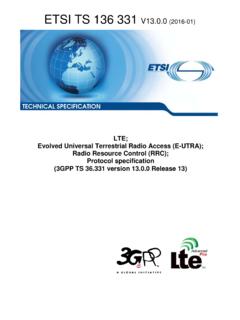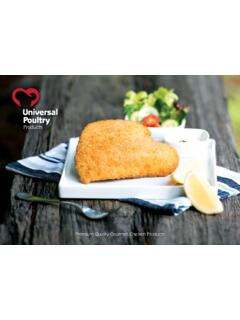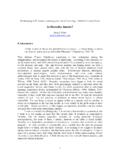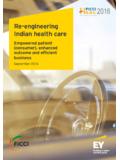Transcription of A Study Guide for Small Groups - Muckle Hoose
1 David Grice 8/5/2011 mere christianity by C. S. Lewis A Study Guide for Small GroupsMere christianity Study Guide David Grice 8/5/2011 mere christianity Study Guide 1 - BOOK I: RIGHT AND WRONG AS A CLUE TO THE MEANING OF THE UNIVERSE ..- 2 - 1. THE LAW OF HUMAN NATURE ..- 2 - 2. SOME OBJECTIONS ..- 3 - 3. THE REALITY OF THE 4 - 4. WHAT LIES BEHIND THE 5 - 5. WE HAVE CAUSE TO BE 6 - BOOK II: WHAT CHRISTIANS 7 - 1. THE RIVAL CONCEPTIONS OF 7 - 2. THE 9 - 3. THE SHOCKING ALTERNATIVE .. - 11 - 4. THE PERFECT - 13 - 5. THE PRACTICAL CONCLUSION .. - 20 - BOOK III: CHRISTIAN - 22 - 1.
2 THE THREE PARTS OF MORALITY .. - 22 - 2. THE CARDINAL - 24 - 3. SOCIAL MORALITY .. - 26 - 4. MORALITY AND PSYCHOANALYSIS .. - 28 - 5. SEXUAL - 30 - 6. CHRISTIAN - 32 - 7. FORGIVENESS .. - 35 - 8. THE GREAT SIN .. - 38 - 9. - 40 - 10. - 42 - 11. - 45 - 12. - 47 - BOOK IV: BEYOND PERSONALITY: FIRST STEPS IN THE DOCTRINE OF THE - 51 - 1. MAKING AND - 51 - 2. THE THREE-PERSONAL - 53 - 3. TIME AND BEYOND - 55 - 4. GOOD INFECTION .. - 57 - 5. THE OBSTINATE TIN SOLDIERS .. - 59 - 6. TWO NOTES .. - 61 - 7. LET'S - 62 - 8. IS christianity HARD OR EASY? .. - 64 - 9.
3 COUNTING THE - 66 - 10. NICE PEOPLE OR NEW MEN .. - 68 - 11. THE NEW MEN .. - 70 - Excursus: C. S. Lewis and 72 - mere christianity Study Guide - 1 - Preface David Grice 8/5/2011 PREFACE Why does Lewis not address the differences between denominations? 1. _____ 2. _____ cf. 1 Cor ; Titus Where did Lewis get the title " mere christianity ?" The words " mere christianity " came from Richard Baxter, a 17th century Anglican minister, in his book The Saints' Everlasting Rest. The concept goes back even further, to the 16th century, to Richard Hooker and his multi-volume work Of the Laws of Ecclesiastical Polity, which was a masterful attempt at a systematic theology for the new Anglican Church.
4 Lewis greatly admired Hooker and said this about him: "Hooker had never heard of a religion called Anglicanism. He would never have dreamed of trying to convert any foreigner to the Church of England. It was to him obvious that a German or Italian would not belong to the Church of England, just as an Ephesian or Galatian would not have belonged to the Church of Corinth." Uncle Toby is a character in the book Tristam Shandy, by Laurence Sterne. He makes the statement "they are the Common-Prayer Book" in response to a question about the duties of a married man. = Highest Common Factor, the British equivalent of Least Common Denominator What is Lewis' point about the of christianity ?
5 Odium theologicum is Latin for theological hatred. How does this tie into Titus Who exhibits this the most in Lewis' experience? What would Lewis have thought of the extreme political correctness in our culture? "We simply cannot, without disaster, use language as these objectors want us to use it." Luke says the disciples were first called "Christians" at Antioch (Acts 11:26) How was it applied there? How should we define and apply it today? What analogy does Lewis use for mere christianity at the end of the Preface? What criteria does he give for picking the right room?
6 How can we help those still in the hall? mere christianity Study Guide - 2 - Book I-1 David Grice 8/5/2011 BOOK I: RIGHT AND WRONG AS A CLUE TO THE MEANING OF THE UNIVERSE 1. THE LAW OF HUMAN NATURE A. It is Universal 1. Whether they admit it or not, all men recognize it, and even appeal to it. cf. Rom 2. It is not the same as the "laws" of physics or chemistry. What does this say about the difference between humans and other created things? cf. Gen 27; 3. It cuts across all cultural, temporal, and geographical boundaries. From the Code of Hammurabi to "We hold these truths to be " there are intrinsic notions of Right and Wrong.
7 Differences are mostly in application, preferences, or technology. Perversions are limited to cults or societies that are generally short-lived. 4. Some try to suppress it, or apply it inequitably. cf. Rom B. It is universally broken no one is keeping the Law cf. Rom , 23; Jas 1. Why do humans not follow their own law as other objects do? cf. 2 Cor What is the result of this? 2. The natural tendency of recognizing failure is to shift blame. But in actuality this proves our knowledge and guilt! cf. Gen CONCLUSION: Like it or not, there IS a Universal standard or Right and Wrong, or Law of Human Nature, and NO ONE is keeping it!
8 mere christianity Study Guide - 3 - Book I-2 David Grice 8/5/2011 2. SOME OBJECTIONS A. "Moral Law" is just evolved herd instinct. 1. Sometimes Right and Instinct conflict with each other We honor those who overcome fear to protect or save someone else even at their own peril. There is a difference between "want" and "ought." This is precisely the difference between desire and conscience. cf. Rom "The Moral Law tells us the tune we have to play; our instincts are merely the keys." 2. When two impulses conflict, the stronger should win. The very fact that there is a conflict tells us there is another set of impulses that is a "decider.
9 " This cannot be an instinct, but something with higher authority. -- cf. Gen ; 3. 4- 5 3. If Moral Law were an instinct, we should have instincts that are objectively "good" and "bad." Instincts, are not good or bad; it is how we use or suppress them that determines morality. An important corollary: Making any instinct an absolute Guide results in evil and cruelty. Mercy without Justice, or Justice without Mercy both have tragic consequences. cf. Matt ; Luke "The road to hell is paved with good intentions." B. Moral Law is just social convention 1. Just because something is taught doesn't mean it can't be Moral Law.
10 Cf. Deut Conventions on the other hand must be taught and learned, and vary across cultures. Moral Law is inherently known or discovered. 2. People tend to magnify the differences in morals between cultures. 3. We make judgments about morals or conventions as to whether one is "better" than another. This requires a higher standard by which to judge. QUESTION: Do Moral Laws change over time? What about their application? What examples does Lewis give to address this issue? Can you think of any others? mere christianity Study Guide - 4 - Book I-3 David Grice 8/5/2011 3. THE REALITY OF THE LAW A.







